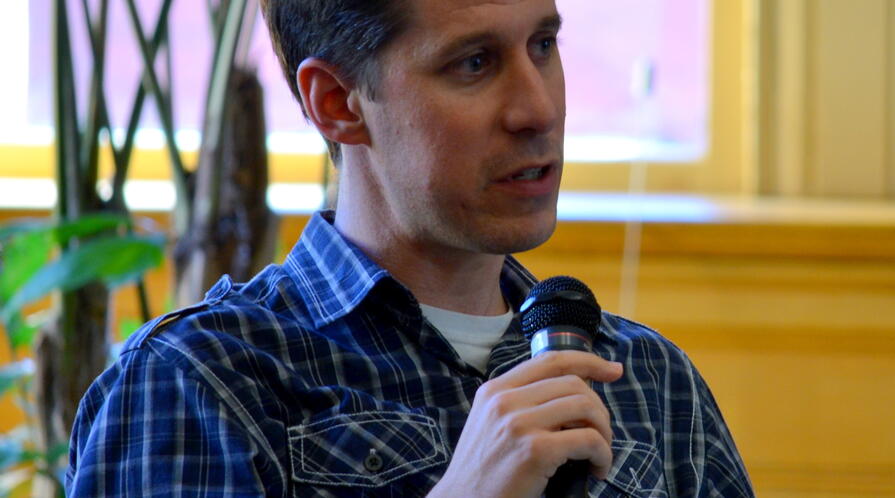Mariano-Florentino Cuéllar, a Stanford law professor and expert on administrative law and governance, public organizations, and transnational security, will lead the university’s Freeman Spogli Institute for International Studies.
The announcement was made in Feb. 11 by Provost John Etchemendy and Ann Arvin, Stanford’s vice provost and dean of research.
“Professor Cuéllar brings a remarkable breadth of experience to his new role as FSI director, which is reflected in his many achievements as a legal scholar and his work on diverse federal policy initiatives over the past decade,” Arvin said. “He is deeply committed to enhancing FSI’s academic programs and ensuring that it remains an intellectually rich environment where faculty and students can pursue important interdisciplinary and policy-relevant research.”
Known to colleagues as “Tino,” Cuéllar starts his role as FSI director on July 1.
Cuéllar has been co-director of FSI’s Center for International Security and Cooperation (CISAC) since 2011, and has served in the Clinton and Obama administrations. In his role as FSI director, he’ll oversee 11 research centers and programs – including CISAC – along with a variety of undergraduate and graduate education initiatives on international affairs. His move to the institute's helm will be marked by a commitment to build on FSI’s interdisciplinary approach to solving some of the world’s biggest problems.
“I am deeply honored to have been asked to lead FSI. The institute is in a unique position to help address some of our most pressing international challenges, in areas such as governance and development, health, technology, and security,” Cuéllar said. “FSI’s culture embodies the best of Stanford – a commitment to rigorous research, training leaders and engaging with the world – and excels at bringing together accomplished scholars from different disciplines.”
Cuéllar, 40, is a senior fellow at FSI and the Stanley Morrison Professor of Law at the law school, where he will continue to teach and conduct research. He succeeds Gerhard Casper, Stanford’s ninth president and a senior fellow at FSI.
“We are deeply indebted to former President Casper for accomplishing so much as FSI director this year and for overseeing the transition to new leadership so effectively,” Arvin said.
Casper was appointed to direct the institute for one year following the departure of Coit D. Blacker, who led FSI from 2003 to 2012 and oversaw significant growth in faculty appointments and research.
Casper, who chaired the search for a new director, said Cuéllar has a “profound understanding of institutions and policy issues, both nationally and internationally.”
“Stanford is very fortunate to have persuaded Tino to become director of the Freeman Spogli Institute for International Studies,” Casper said. “He will not only be an outstanding fiduciary of the institute, but with his considerable imagination, energy, and tenacity will develop collaborative and multidisciplinary approaches to problem-solving.”
Cuéllar – who did undergraduate work at Harvard, earned his law degree from Yale and received his PhD in political science at Stanford in 2000 – has had an extensive public service record since he began teaching at Stanford Law School in 2001.
Taking a leave of absence from Stanford during 2009 and 2010, he worked as special assistant to the president for justice and regulatory policy at the White House, where his responsibilities included justice and public safety, public health policy, borders and immigration, and regulatory reform. Earlier, he co-chaired the presidential transition team responsible for immigration.
After returning to Stanford, he accepted a presidential appointment to the Council of the Administrative Conference of the United States, a nonpartisan agency charged with recommending improvements in the efficiency and fairness of federal regulatory programs.
Cuéllar also worked in the Treasury Department during the Clinton administration, focusing on fighting financial crime, improving border coordination and enhancing anti-corruption measures.
Since his appointment as co-director of CISAC, Cuéllar worked to expand the center’s agenda while continuing its strong focus on arms control, nuclear security and counterterrorism. During Cuéllar’s tenure, the center launched new projects on cybsersecurity, migration and refugees, as well as violence and governance in Latin America. CISAC also added six fellowships; recruited new faculty affiliates from engineering, medicine, and the social sciences; and forged ties with academic units across campus.
He said his focus as FSI’s director will be to strengthen the institute’s centers and programs and enhance its contributions to graduate education while fostering collaboration among faculty with varying academic backgrounds.
“FSI has much to contribute through its existing research centers and education programs,” he said. “But we will also need to forge new initiatives cutting across existing programs in order to understand more fully the complex risks and relationships shaping our world.”
In addition to Casper, the members of the search committee were Michael H. Armacost, Francis Fukuyama, Philip W. Halperin, David Holloway, Rosamond L. Naylor, Douglas K. Owens, and Elisabeth Paté-Cornell.








